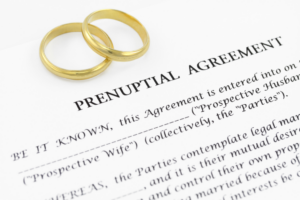Divorce is never easy, but it doesn’t always have to involve lengthy court battles. Mediation offers an alternative approach, helping couples resolve disputes amicably without the stress and expense of litigation. Mediation is a form of alternative dispute resolution (ADR) in which a neutral third party, known as the mediator, helps two parties negotiate and reach an agreement. Unlike a judge, the mediator does not make decisions for the parties but facilitates communication to help them reach a mutual understanding.
Mediation vs. Arbitration: What’s the Difference?
While mediation focuses on negotiation and reaching a settlement, arbitration involves a neutral third party who hears evidence and makes a binding decision. Mediation is typically more collaborative, whereas arbitration is similar to a court proceeding.
Advantages of Mediation
- Mediation offers several key benefits over traditional litigation, including:
- Mediation is generally less expensive than going to court.
- Mediation can resolve disputes more quickly than litigation.
- Both parties retain more control over the outcome.
- Mediation sessions are private, unlike court hearings, which are public records.
- Mediation often leads to less conflict and better post-divorce relationships, especially when children are involved.
Mediation in Divorce
When it comes to divorce, mediation can help couples resolve disputes related to child custody, property division, alimony, and other key issues. It allows couples to work together to create a settlement that works for both parties without the need for court intervention.
Divorce Mediation Process: Step-by-Step
The divorce mediation process typically follows these steps:
- Both parties meet with the mediator to discuss the issues that must be resolved.
- The mediator facilitates negotiations, helping both parties communicate effectively and explore possible solutions.
- Once an agreement is reached, the mediator drafts a mediation agreement outlining the terms of the settlement.
- The agreement is submitted to the court for approval, and once approved, it becomes legally binding.
When Mediation Is a Good Option
Mediation is often recommended when:
- Both parties are willing to communicate and compromise.
- You want to keep control over the outcome of your divorce.
- You’re looking for a faster and more cost-effective solution.
- You want to maintain privacy and avoid a public court battle.
- You’re interested in maintaining a civil post-divorce relationship, especially if you have children.
When Mediation May Not Be Recommended
Mediation may not be suitable in cases where:
- There is a history of domestic violence or abuse.
- One party is unwilling to negotiate in good faith.
- There is a significant power imbalance between the parties.
- One party is hiding assets or being dishonest about financial matters.
- In these situations, litigation may be a better option to ensure that your rights are protected.
Divorce Mediation Checklist
If you decide to move forward with mediation, being prepared can help make the process smoother and more successful. Here’s a checklist of things to bring to your mediation sessions:
- Gather all relevant financial information, including bank statements, tax returns, pay stubs, and investment account details.
- Bring information about any property you own, including mortgage statements, deeds, and property appraisals.
- If you have children, bring any documents related to their care, such as school records and medical information.
- Write down your priorities for the mediation, including your must-haves and areas where you’re willing to compromise.

























